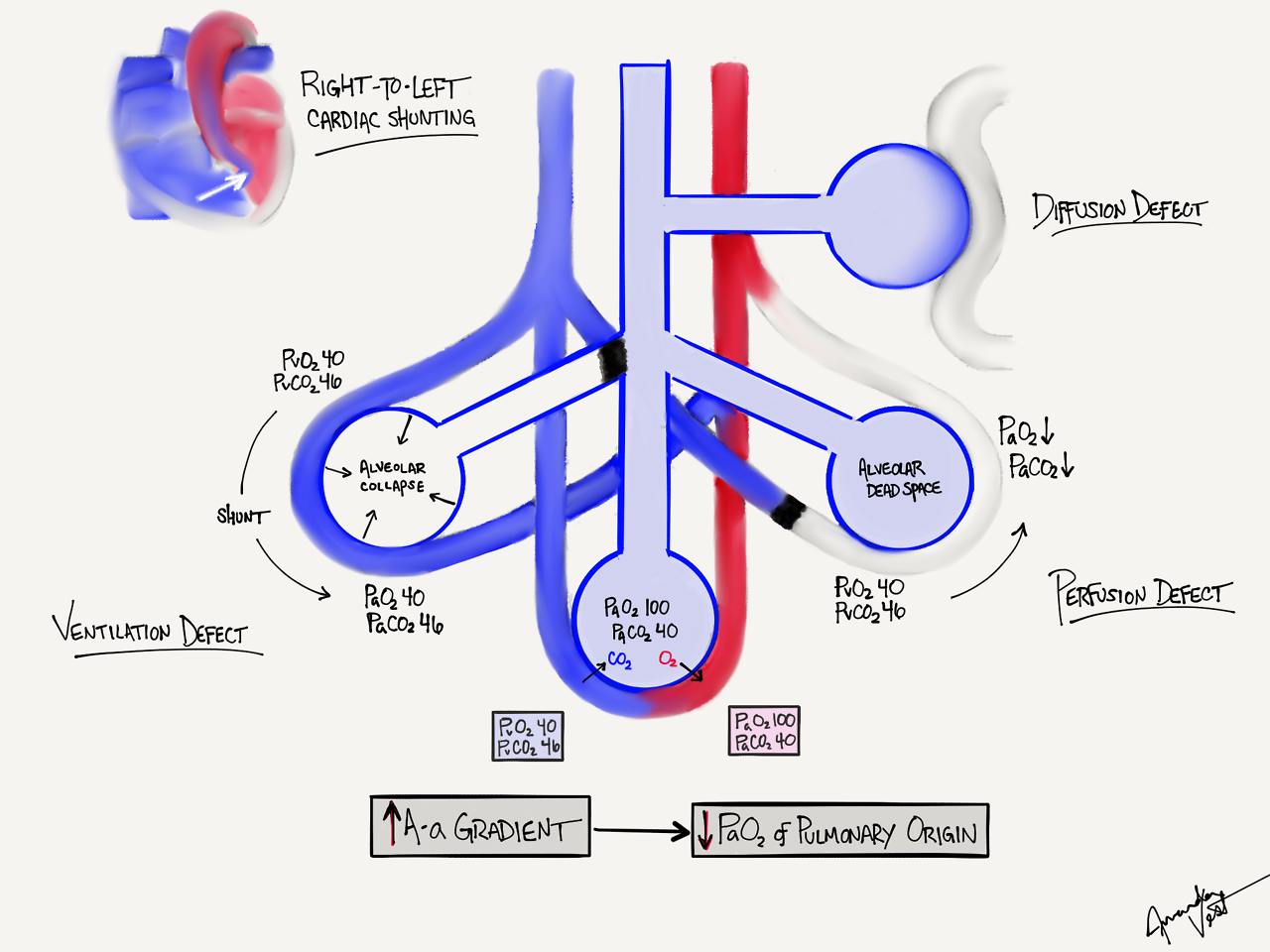

Efficient gas exchange requires close matching of regional ventilation and perfusion. The lung functions primarily to exchange oxygen (O 2 ) and carbon dioxide between inspired air and blood. It also produces more uniform distribution of stress and strain of lung tissue. Prone position improves V A /Q matching by more evenly distributing V A and Q. However, at high levels, it increases dead space ventilation and hypercarbia. Ventilation/perfusion ratios less than 1 are responsible for hypoxemia in asthmatics, but no correlation exists between V A /Q mismatch and the degree of small airway obstruction.ĭuring mechanical ventilation, positive end-expiratory pressure decreases the proportion of shunt in PARDS. The primary V A /Q abnormality in pediatric acute respiratory distress syndrome (PARDS) is intrapulmonary shunt. Perfusion is affected more by gravitational forces than ventilation but is of secondary importance in Q and V A. Gravity increases pulmonary blood flow and ventilation to the base of the lung. The fractal design of the lung and gravitational effects on the flow of air and blood affect V A /Q matching. Gas exchange is optimized when pulmonary perfusion (Q) and alveolar ventilation (V A ) are tightly matched.


 0 kommentar(er)
0 kommentar(er)
